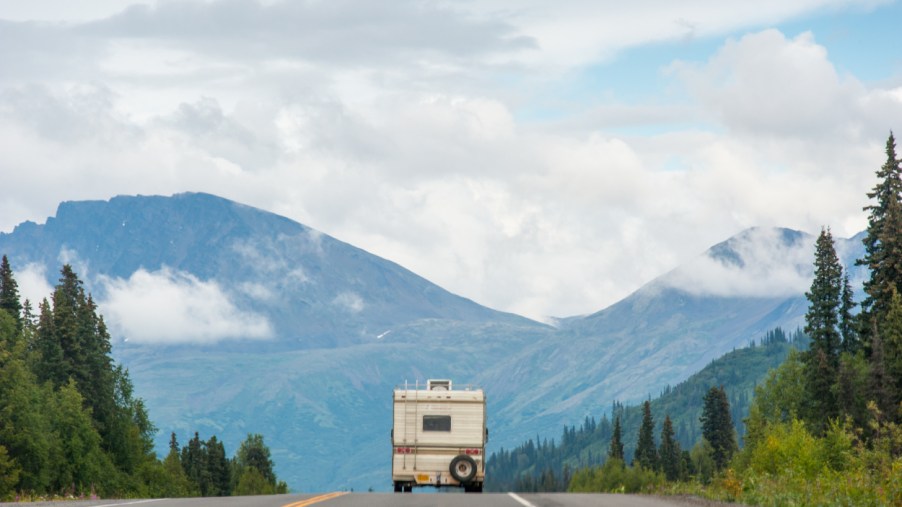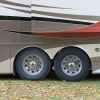
What Is a Safe Speed To Drive an RV?
A vacation away from home in your personal camper van or RV is a great way to experience the outdoors. An RV provides more sufficient shelter than a tent, plus plumbing and probably a decent entertainment setup. Many motorhomes are so comfortable (and even luxurious) that some people switch to full-time RV living.
However, a journey inside an RV is a little different compared to a regular car. RVs are much heavier than the average vehicle and need special tires to carry that weight: two factors that affect performance. With that in mind, how fast should you drive your RV?
What road laws say about driving an RV
Depending on the size of your camper, it might be considered a large truck in the eyes of state law. Large motorhomes over 8,000 pounds have to follow speed limits for trucks, according to Outdoorsy. Also, even if your camper weighs less, the gear you bring along could boost you over the limit.
In most states, the RV speed limit is between 70-75 mph. Some states, like Kansas and Nebraska, require you to drive no faster than 55 mph if you’re towing a trailer. In certain states, no one is permitted to be inside the trailer while it’s being towed.
Slow and steady wins the race
According to Camper Report, you shouldn’t drive your RV faster than 65 mph, and 63 mph is the ideal speed. Sure, it might not be fast, and there might be some impatient drivers honking at you. However, the benefits of driving slow greatly outweigh the risks.
Since RVs are so heavy, a bigger stopping distance is required. An RV is incapable of making quick stops, so there’s a higher likelihood of colliding with another vehicle or pedestrian. Speeding is also one of the major causes of fatal camper rollovers.
Additionally, some RV tires just aren’t built to drive at speeds over 65 mph. Overworking your camper’s tires increases the risk of a blowout or cracked sidewalls. It’s better to play it safe and drive slowly enough to enjoy your surroundings.
Driving slowly will also allow you to save money on fuel, which RVs can use in abundance. However, it’s important to be considerate of other drivers behind you. If you’re on a two-lane road for extended periods of time, pull over to the side and let other cars pass if it’s safe to do so.
In some states, you can also get ticketed for driving too slowly on certain roads. Check your local laws for guidance, but these citations are usually only issued in extreme circumstances, like blocking traffic.
What are the best RV safety tips?
Many motorhome accidents can also be contributed to being unfamiliar with driving such a large vehicle. RVs usually have a “tail swing”, which means the back of the vehicle turns later than the front half.
Every RV has a different tail swing, so you should practice turning yours before traveling around other motorists. You can also take this opportunity to practice RV steering, parking, and adjusting your mirrors correctly.
You also have to be more diligent about checking the weather when you’re driving an RV. Rather than power through a downpour or a snowstorm, it’s recommended that you pull over and wait it out. Reduced visibility can lead to blowouts or collisions, both of which are more expensive to fix on an RV.
Above all, it’s important to know your limits, physically and mentally. If you think your RV is too big to enter a parking garage or tunnel, don’t attempt to drive through anyway. If you feel too tired or stressed while driving, there’s no shame in pulling over and taking a break.



